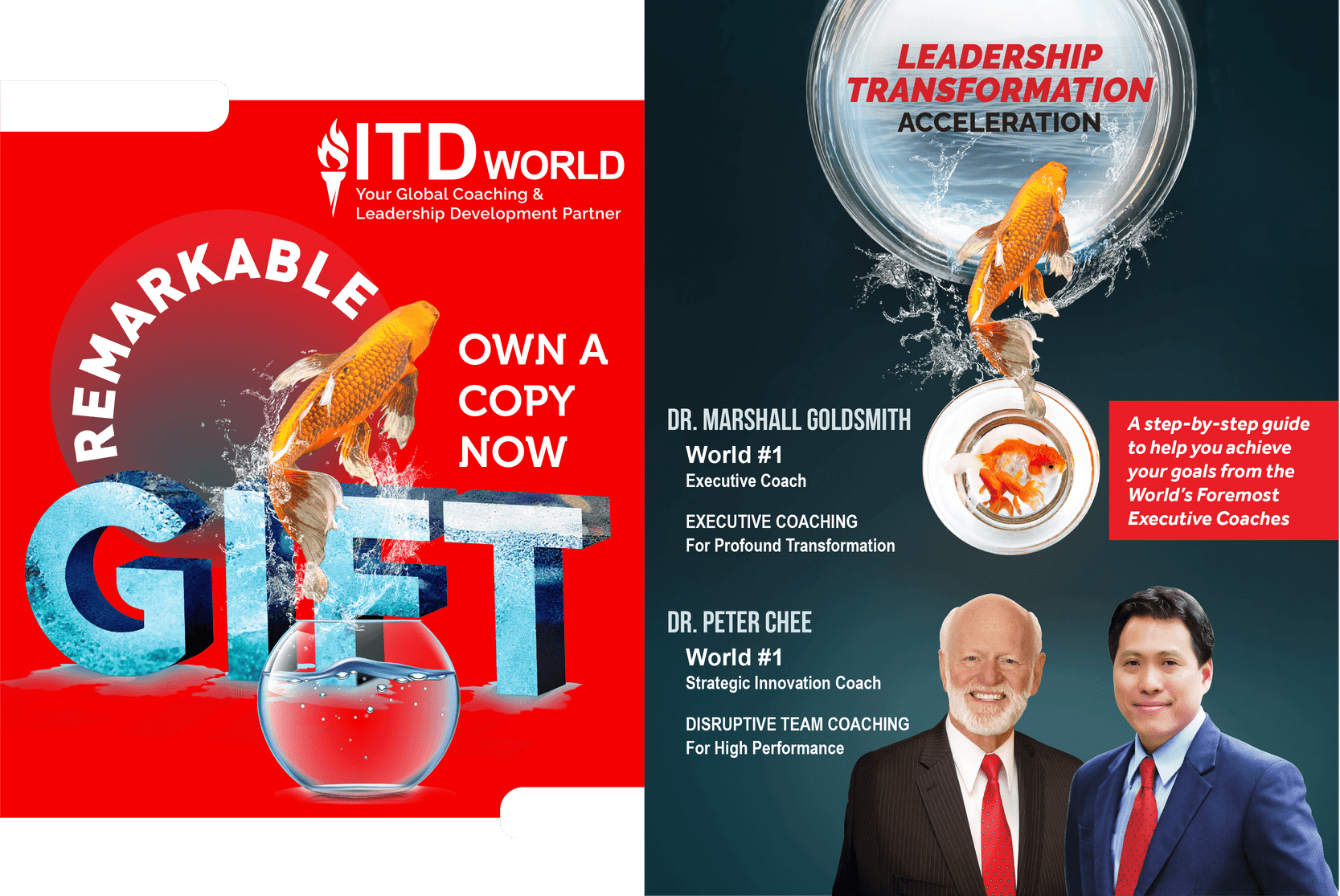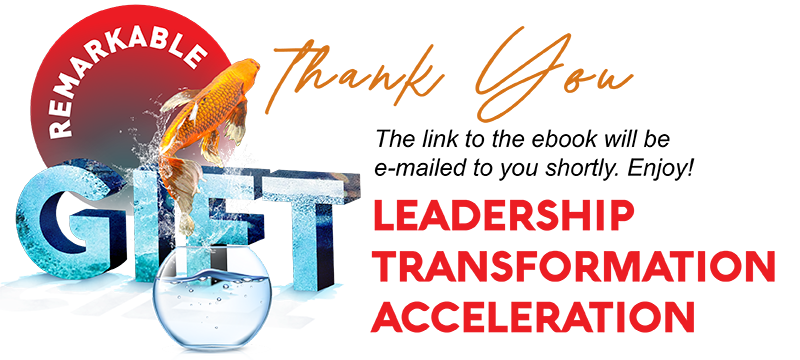Learn how to identify in-demand skills, overcome learning challenges, and build a personalized skill development plan for a thriving future.
The world of work is shifting rapidly, driven by technological advancements, globalization, and changing business needs. As such, the competencies one needs to succeed have also been evolving. Below, we will explore essential skill development strategies to future-proof one’s professional development journey and stay relevant in the ever-changing market.
(by Jonathan M. Pham)
Highlights
- Skill development is the continuous process of improving your abilities to succeed in your career and personal life.
- In today’s evolving workplace, top competencies include adaptability, digital literacy, AI knowledge, cybersecurity, critical thinking, communication, emotional intelligence, and project management.
- Identifying skills for development requires self-reflection, research, feedback, and planning to address challenges like time constraints and resource access.
- To effectively develop your capabilities, you need to set goals, explore diverse learning methods, practice actively, embrace lifelong learning, build a supportive network, and leverage technology.
What is Skill Development?
Skill development (also referred to by other names such as further training, professional development, vocational training, etc.) is the deliberate and continuous process of acquiring/ improving one’s knowledge, skills, competencies, and capabilities in specific areas. Its main purposes include:
- Meet the demands of one’s work or pursue personal and professional growth.
- Adapt to changing work environments.
- Enhance one’s employability and achieve career goals.
- Support organizational success by fostering a skilled and competent workforce.
- etc.
Skill development is achievable through a variety of means, including:
- Formal education programs such as degrees, diplomas, and certificates.
- Training workshops & initiatives on specific skills, such as software or leadership training.
- On-the-job experience.
- Self-study (e.g. reading books, taking online courses, or practicing a skill).
- Coaching & mentoring delivered by someone more experienced than you (e.g. a boss, a colleague, or a professional coach/ mentor).
Skill Development Examples
Skill development encompasses various areas, ranging from cognitive prowess to technical proficiency, soft skills, and personal management abilities. Each domain offers unique avenues for enhancement and growth.
- Cognitive skills
Cognitive skills such as critical thinking, problem-solving, and memory retention form the bedrock of intellectual capacity, encompassing processes. Activities like solving puzzles help sharpen these faculties, fostering sharper logic and heightened creativity.
- Technical/ Hard skills
These are the competencies specific to a particular job or occupation, such as computer programming, accounting, or engineering. Embracing new programming languages via online courses or gaining mastery over software applications through tutorials and practice sessions significantly bolsters one’s professional toolkit.
- Soft skills
Soft skills, though intangible, are equally vital for thriving in any professional environment. Effective communication, teamwork, and adept problem-solving are hallmarks of success. Actively refining communication skills through public speaking courses or honing teamwork abilities via collaborative projects fosters a conducive work environment and enhances productivity. Additionally, adept time management, facilitated by setting realistic goals and utilizing productivity tools, ensures optimal task allocation and minimizes stress.
- Personal/ Self-management skills
Personal or self-management skills underpin one’s ability to navigate life’s complexities with finesse. Learning a new language not only opens doors to new cultures but also sharpens cognitive abilities. Or, incorporating mindfulness practices into daily routines aids in stress management and cultivates self-awareness, fostering emotional resilience.
The Importance of Skill Development
The future belongs to those who learn more skills and combine them in creative ways.
Robert Greene
Skill development holds paramount importance – both from an individual and an organizational perspective – thanks to its contribution to fostering growth, adaptability, and success in today’s dynamic landscape.
Individual benefits
- Increased employability: In today’s dynamic job market, possessing relevant and up-to-date skills is crucial for getting hired and staying competitive. Mastering new skills expands your career options and makes you a more attractive candidate.
- Career progression: Continuous learning equips you with the knowledge and expertise needed to perform at a higher level and undertake more challenging responsibilities. This translates to improved performance in your current role.
- Personal satisfaction: The process of acquiring new skills keeps you intellectually stimulated and opens doors to new opportunities and experiences. As such, it contributes to fostering a sense of accomplishment and boosting self-confidence.
- Adaptability and future-proofing: The world of work is constantly evolving. By staying abreast of emerging trends and technologies, one is better equipped to future-proof their careers, ensuring relevance and competitiveness in the long run.
- Enhanced well-being: The pursuit of knowledge promotes overall well-being by stimulating intellectual curiosity, cultivating new hobbies/ interests, and fostering social connections.
Benefits for organizations
- Bridging the skills gap: From an organizational standpoint, continuous skill development helps address the gap between the skills businesses need and those available in the workforce, ensuring that companies have access to the talent necessary to thrive in the current competitive marketplace.
- Enhanced productivity and performance: A skilled workforce translates into heightened productivity and performance, driving efficiency and ultimately, profitability.
- Increased innovation and adaptability: Employees empowered with diverse skill sets are better equipped to tackle challenges creatively, think outside the box, and contribute to advancements in various fields. This lays the foundation for organizations to adapt swiftly to market shifts and technological changes.
- Employee engagement and retention: By demonstrating a commitment to employee growth and well-being, organizations foster a positive work culture, leading to heightened satisfaction, reduced turnover, and increased loyalty. This, in turn, saves costs associated with recruitment, training, and lost productivity due to turnover.
- Attracting top talent: In today’s competitive talent market, organizations that prioritize learning & development are more likely to attract and retain top talent. This ensures a strong and qualified workforce, crucial for long-term success.
- Enhanced customer satisfaction: Skilled employees generally deliver better service and address customer needs effectively, thereby boosting satisfaction and loyalty.
Build your own business team. Survival in business requires a synergy of skills.
Richard Branson

Skill development benefits
Types of Skill Development
Skill development may be categorized in various ways, depending on the specific focus.
By purpose:
- Upskilling: Acquiring new skills to advance in your current career or take on new responsibilities. According to a study by LMS, 63% of respondents agree that upskilling will become more important than ever, given the AI-driven future that is about to come.
- Reskilling: Learning new skills due to technological change or career shifts.
- Cross-skilling: Acquiring skills from different disciplines to become more versatile and adaptable.
- New skilling: Preparing for a completely new career path.
- Maintenance skilling: Regularly practicing and staying updated on existing competencies.
By approach:
- Formal learning: Attending courses, workshops, or degree programs.
- Informal learning: On-the-job training, mentoring, self-study, or online resources.
- Experiential learning: Learning through active participation in projects, simulations, or real-world experiences.
- Social learning: Acquiring knowledge and skills through observation, collaboration, and feedback from others.
- Microlearning: Breaking down learning into small, bite-sized chunks for easy absorption.
- Blended learning: Combining different methods (e.g., online courses, workshops, group projects) for a richer experience.
Skill Development Topics
Choosing the right skill development topics depends on one’s individual goals, career aspirations, and current skill set. Below are some specific topics divided by category:
Technical skills:
- Programming languages: Python, Java, JavaScript, R, etc.
- Software applications: Microsoft Office Suite, Adobe Creative Suite, Project Management Tools, etc.
- Data analytics: Data visualization, machine learning, statistical analysis, etc.
- Cybersecurity: Network security, ethical hacking, digital forensics, etc.
- Cloud computing: AWS, Azure, Google Cloud Platform, etc.
Soft skills:
- Communication: Public speaking, active listening, writing, negotiation, etc.
- Teamwork: Collaboration, conflict resolution, leadership, emotional intelligence, etc.
- Problem-solving: Critical thinking, creative thinking, decision-making, etc.
- Time management: Organization, prioritization, goal setting, etc.
- Stress management: Mindfulness, resilience, self-care, etc.
Personal skills:
- Financial literacy: Budgeting, investing, debt management, etc.
- Health and wellness: Nutrition, exercise, sleep hygiene, etc.
- Project management: Planning, execution, delegation, etc.
- Learning strategies: Speed reading, memory techniques, note-taking, etc.
- Creativity and innovation: Brainstorming, problem-solving, design thinking, etc.
By industry or role:
- Marketing: Content marketing, social media marketing, digital advertising, analytics.
- Finance: Financial modeling, investment analysis, risk management, accounting.
- Sales: Prospecting, negotiation, closing deals, customer relationship management.
- Healthcare: Medical coding, patient care, communication with patients, use of medical technology.
- Education: Instructional design, teaching methods, technology integration, assessment.
Emerging trends:
- Artificial Intelligence (AI): Understanding AI concepts, applications, and ethical considerations.
- Automation: Adapting to automation and learning new skills for jobs less susceptible to it.
- Digital marketing: Content creation, social media marketing, search engine optimization (SEO), etc.
- Sustainability: Understanding environmental issues and developing sustainable practices in your field.
- Remote work: Mastering communication, collaboration, and time management skills for remote environments.
Top Skills to Be Developed in 2024
Success is 20% skills and 80% strategy. You might know how to read, but more importantly, what’s your plan to read?
Jim Rohn
The ever-evolving landscape of work demands a diverse skill set that encompasses both technical proficiency and interpersonal finesse. Here are some of the top skills:
-
Adaptability & continuous learning
With rapid technological advancements and shifting market dynamics, the ability to learn new skills quickly and adapt to changing circumstances has become paramount. For this purpose, microlearning, which involves breaking down information into small, digestible chunks, emerges as a popular strategy for continuous skill enhancement.
-
Digital skills & Data literacy
In an era dominated by AI and automation, digital knowledge has become indispensable. Understanding digital tools, data analysis, and cybersecurity awareness is imperative for navigating the current digital landscape effectively. Additionally, data literacy, the ability to comprehend and interpret data, is increasingly vital across various industries.
Read more: Human Leadership in a Digital World – Skills & Strategies for Sustainable Success
-
Artificial Intelligence (AI) & Automation
Familiarity with AI, machine learning technologies, and automation is essential for professionals across sectors. Skills such as coding, programming, data science, and engineering are integral for harnessing the potential of AI and adapting to automation.
-
Cybersecurity skills
With the proliferation of online threats, cybersecurity skills are crucial for safeguarding digital systems and data. Proficiency in encryption, threat detection, and risk management is essential for ensuring the privacy and security of individuals and organizations.
-
Critical thinking & problem-solving
The ability to think critically, analyze information, and devise innovative solutions remains highly prized. Skills such as identifying bias, evaluating evidence, and finding creative resolutions to complex challenges are indispensable in today’s dynamic environment.
-
Communication & collaboration
Effective communication and collaboration are fundamental for success in any team setting. Mastery of active listening, clear communication, and virtual collaboration tools is essential, particularly in remote work environments.
-
Soft skills & Emotional intelligence
As technology automates routine tasks, soft skills like empathy, leadership, and teamwork start gaining prominence and distinguish highly performing individuals from the rest. Emotional intelligence, which involves understanding and managing emotions, is essential for fostering strong relationships and navigating interpersonal dynamics.
-
Project management skills
Proficiency in project management is crucial for overseeing initiatives of varying sizes and complexities. Skills such as strategic planning, delegation, and feedback facilitate the successful execution of projects.
Even in such technical lines as engineering, about 15% of one’s financial success is due one’s technical knowledge and about 85% is due to skill in human engineering, to personality and the ability to lead people.
Dale Carnegie

Skill development skills
How to Identify Skills for Development
Build your skills, not your resume.
Sheryl Sandberg
Identifying skills for development is a crucial first step in your journey toward improvement and growth. Here are some effective strategies to help you pinpoint the skills most conducive to advancement:
Self-assessment:
- Reflect on your strengths and weaknesses: Consider what you’re good at and what areas you find challenging. This helps you understand your current skill level in various areas.
- Define personal goals: What do you want to achieve in your personal life? Are there skills that would make you more confident, productive, or fulfilled?
- Think about your career goals: Where do you want to be in 5 or 10 years? What skills will you need to get there? What skills do you need to advance, change careers, or start a new business? Analyze job descriptions and industry trends for your target careers.
- Assess your current job satisfaction: Are you feeling unchallenged or lacking opportunities to use your skills? What skills could improve your performance and job satisfaction?
Research & exploration:
- Review job requirements: Review your job description and identify the essential skills listed. Consider any upcoming projects or changes that might require additional skills.
- Identify in-demand skills: Research job postings, industry reports, and the future of work trends to see what skills are highly sought after.
- Look for learning resources and opportunities: What resources and training are available to you to develop specific competencies?
- Commit your time: How much time are you realistically able to dedicate to skill development?
- Leverage personal motivation: Choose skills you find genuinely interesting and motivating to sustain your learning journey.
Feedback & external Input:
- Seek feedback from trusted sources: Ask colleagues, mentors, or professionals in your field for their honest assessment of your strengths and areas for improvement.
- Take skill assessments: Online tests or professional assessments can provide a more objective perspective on your skill level in specific areas.
- Personality tests: Understanding your personality type can give insights into your strengths and learning preferences.
- Skills gap analysis: Compare your current skills to your desired skills to identify areas for development.
Without Knowledge, Skill cannot be focused. Without Skill, Strength cannot be brought to bear and without Strength, Knowledge may not be applied.
Alexander the Great

How to build a skill development plan
Challenges of Skill Development
Navigating the terrain of skill development presents several challenges, each requiring a strategic approach for resolution:
- Identifying the right skills
The abundance of resources and opinions these days makes it confusing for a lot of us when it comes to selecting the most relevant competencies for development. Moreover, keeping abreast of rapidly evolving technologies and industries also poses a significant challenge – especially for the previous generations. Not to mention, our innate tendency to overestimate strengths &underestimate weaknesses further complicates the process, making it difficult to objectively identify areas for improvement.
- Overcoming procrastination & time barriers
Balancing competing priorities such as work, personal life, and skill development often leads to procrastination and disrupted learning plans. Sustaining motivation, especially in the face of initial setbacks, proves challenging for many of us – who often find themselves struggling to find dedicated time for learning amidst busy schedules.
- Accessing resources & support
High-quality training programs and resources may not be readily accessible to everyone – and even for those who have access to them, the plethora of learning methods available just makes things complicated. Furthermore, the absence of encouragement and guidance from peers, mentors, or colleagues is also another factor that hampers progress and accountability.
- Putting skills into practice
Translating acquired skills into real-world applications necessitates practice and adaptation. However, our fear of failure – as well as limited opportunities within current roles – often inhibits the efforts to utilize newly developed competencies.
- Maintaining continuous learning
The perpetual evolution of skills demands ongoing learning and adaptation, which can be draining for many people. Integrating skill development into daily life without neglecting other obligations requires diligent effort to sustain motivation and seek challenges for growth.
Overcoming these hurdles requires a proactive and tailored approach. By acknowledging individual challenges, seeking support from peers and mentors, and implementing effective learning strategies, one may navigate the complexities of skill development with greater efficacy, ultimately realizing their full potential and achieving their goals.
Don’t wish it were easier. Wish you were better.
Jim Rohn
Skill Development Strategies & Best Practices
Nobody ever mastered any skill except through intensive persistent and intelligent practice.
Norman Vincent Peale
Below are some tips for individuals to consider applying to their professional development journey.
-
Goal-oriented learning
Aligning skill development with specific goals is paramount. Prioritize skills based on their relevance to career aspirations and current needs. Make sure to focus on both hard and soft competencies – a strong skillset should combine technical expertise with communication, teamwork, and adaptability.
It is recommended that you break down large goals into smaller, manageable steps to maintain focus and minimize overwhelm. Create personalized learning plans with achievable objectives and dedicated learning schedules, so as to ensure steady progress.
-
Diverse learning methods
To enhance engagement and retention, you should aim to explore a variety of resources and learning styles. Tailor learning methods to individual preferences. Do you prefer visual, auditory, or kinesthetic learning? Choose one that caters to your preferred style for optimal engagement and retention.
Combining different approaches, such as online courses, workshops, mentorship, and hands-on projects, is generally the ideal way to be rewarded with a well-rounded learning experience. Just make sure to prioritize quality over quantity – by choosing high-quality resources and learning experiences that offer valuable insights and practical applications.
-
Active learning and practice
To foster deeper understanding and skill mastery, one should aim to move beyond passive consumption of information – by engaging actively through exercises, discussions, and real-world projects. Inject enjoyment into learning by selecting topics of personal interest and interactive learning methods. Consistent practice is key to solidifying knowledge and achieving proficiency.
-
Lifelong learning mindset
Skill development is an ongoing process that requires continuous improvement. As such, you should stay updated on industry trends and emerging technologies to remain relevant in the field. Embrace change and seize new learning opportunities to adapt to evolving demands and career aspirations.
-
Build a supportive network
Surround yourself with like-minded individuals – while seeking guidance from experienced professionals to foster motivation and accountability. Networking with peers, joining communities, and seeking mentorship opportunities (whether on your own or by leveraging your employer’s resources) all offer invaluable sources for receiving support and feedback. In addition, partnering with a learning buddy or accountability partner is also a good option to enhance motivation and share learning experiences.
-
Utilize technology
Online learning platforms provide convenient access to a wealth of resources and personalized learning experiences. Consider employing productivity tools for time management, organization, and progress tracking to enhance efficiency. On top of that, stay connected with the latest trends through industry publications and online discussions, so as to facilitate continuous learning and professional development.
Repetition is the mother of skills.
Tony Robbins

How to improve skill development
Skill Development Plan Example & Template
Here’s an example of a skill development plan you may adapt for your own needs:
Name: John Doe
Occupation: Marketing Specialist
Career Goal: Become a Marketing Manager within 2 years
Skill Area: Digital Marketing Analytics
Strengths: Strong understanding of basic marketing concepts, and experience with social media advertising.
Weaknesses: Limited knowledge of advanced analytics tools, and difficulty interpreting complex data sets.
Goal: Develop proficiency in using Google Analytics and create data-driven marketing campaigns.
Timeline: 6 months
Action Steps:
- Month 1: Complete online course on Google Analytics fundamentals.
- Month 2: Apply learnings to analyze personal social media marketing performance.
- Month 3: Join an online community or forum for Google Analytics users.
- Month 4: Take a more advanced course on marketing data analysis.
- Month 5: Shadow the company’s data analyst and learn from their expertise.
- Month 6: Present a data-driven marketing campaign proposal to my manager.
Resources:
- Google Analytics Academy courses.
- Udemy/Coursera data analytics courses.
- Online communities: Reddit’s r/GoogleAnalytics, Facebook groups.
- Company mentorship program.
Evaluation:
- How will you track your progress? => Through course completion certificates, personal project results, and feedback from a mentor.
- When will you reassess your learning? => At the end of 6 months.
- How will you adapt your plan if needed? => Based on progress and learning experiences.

Knowledge and skill development for work
Skill Development Activities & Exercises
Individuals:
- Self-assessment tools and quizzes: Identify strengths, weaknesses, and areas for improvement. (e.g., Myers-Briggs, StrengthsFinder).
- Online courses and tutorials: Learn new skills at your own pace on various platforms. (e.g., Coursera, Udemy).
- Mentorship programs: Gain guidance and insights from experienced professionals.
- Shadowing: Observe and learn from others in your desired field.
- Challenge projects: Take on new tasks or projects to apply and develop your skills.
- Network with like-minded individuals: Share experiences and learn from others’ journeys.
- Books and articles: Expand your knowledge and gain new perspectives.
- Skill-building apps and games: Make learning fun and engaging.
- Practice and reflection: Regularly apply your skills and reflect on your progress.
Teams:
- Team-building activities: Foster collaboration, communication, and problem-solving. (e.g., Escape rooms, scavenger hunts).
- Cross-training: Team members learn each other’s skills and become more versatile.
- Knowledge-sharing sessions: Team members present their expertise to others.
- Collaborative projects: Work together on a common goal to develop skills and teamwork.
- Peer feedback and coaching: Provide constructive feedback and support to colleagues.
- Role-playing exercises: Practice real-world scenarios to hone communication and problem-solving skills.
- Case studies and simulations: Analyze real-world challenges and develop solutions together.
- Team retreats and workshops: Focus on specific skill development and team bonding.
Organizations:
- Skills gap analysis: Identify the skills needed for success and areas where employees need development.
- Training and development programs: Offer workshops, courses, and certifications to upskill and reskill employees.
- Tuition reimbursement programs: Support employees in their pursuit of further education.
- Internal mentoring and coaching programs: Provide employees with guidance and support from experienced colleagues.
- Cross-functional teams: Encourage collaboration and knowledge sharing across departments.
- Innovation challenges and hackathons: Encourage employees to think creatively and develop new skills.
- Performance feedback and development plans: Provide employees with feedback and support for skill development.
- Learning and development budget: Allocate resources for employee development initiatives.
- Recognition and rewards: Recognize and reward employees for their skill development efforts.
Skill Development Quotes
Skills are never taught, they are acquired. I can give you a camera, but can’t feed your vision.
Raghu Rai
The more we give importance to skill development, the more competent will be our youth.
Narendra Modi
You can cut down a tree with a hammer, but it takes about 30 days. If you trade the hammer for an ax, you can cut it down in about 30 minutes. The difference between 30 days and 30 minutes is skills.
Jim Rohn
Practice is just as valuable as a sale. The sale will make you a living; the skill will make you a fortune.
Jim Rohn
Skill is the unified force of experience, intellect and passion in their operation.
John Ruskin
My best skill was that I was coachable. I was a sponge and aggressive to learn.
Michael Jordan

Find out more skill development quotes here.
Resources for Skill Development
Books
- The Success Principles by Jack Canfield: Introduces 65 methods for transforming your life and achieving your goals, based on the principles of successful people from different fields and backgrounds.
- The Talent Code by Daniel Coyle: Explores the concept of talent and how it can be cultivated through deep and deliberate practice, motivation, and coaching.
- Atomic Habits by James Clear: A practical guide on how to change your habits and get 1% better every day – by utilizing the Four Laws of Behavior Change (make it obvious, make it attractive, make it easy, and make it satisfying).
- Peak by K. Anders Ericsson and Robert Pool: Reveals the secrets of the new science of expertise, based on decades of research by the author and other psychologists. According to the authors, anyone can improve their skills and abilities with deliberate practice – which involves setting specific goals, getting feedback, and focusing on the areas that need improvement.
- Leadership – Theory, Application, & Skill Development by Christopher F. Achua and Robert N. Lussier: A comprehensive and engaging introduction to leadership theories, which covers traditional and cutting-edge leadership topics, such as traits, ethics, behavior, motivation, contingency, communication, coaching, conflict, power, politics, change, crisis, charisma, transformation, culture, diversity, and strategy.
Quizzes/ Questionnaires
- Empowered and Thriving – Free Personal Development Quizzes.
- SHRM Quiz – Test Your Knowledge of Learning and Development.
- Quizack – General Skill Development (for Professionals) MCQs.
- ProProfs Quiz – What Skills Do I Have?
Software
- Pluralsight – Technology skills for business.
- Udacity.
Discover ITD World’s Skill Development Courses, Workshops & Training Programs
At ITD World, we believe that lifelong learning is the key to success. Whether you’re a seasoned professional looking to upskill or simply driven to expand your horizons, we’re here to empower you with the knowledge and skills you need to thrive. Our comprehensive suite of programs spans diverse areas of expertise required for sustained success in today’s business landscape – including coaching, leadership, communication, and overall soft skill development.
What sets us apart?
- Expert-led instruction: Our instructors and skill development coaches are industry veterans, passionate about sharing their knowledge and guiding your learning journey.
- Tailored learning: We offer a variety of formats to suit your needs, from interactive workshops and immersive boot camps to flexible online certificate courses and personalized in-house solutions for corporates.
- Real-world relevance: We focus on practical skills and case studies, ensuring you can apply your learnings immediately in your career and daily life.
- Global reach: Access our programs in person or virtually from anywhere in the world.
- Supportive community: Join a network of peers and instructors who will encourage and support you throughout your learning journey.
Ready to explore your options? Browse our extensive catalog, connect with our expert advisors, or attend a free webinar to learn more about how ITD World can help you achieve your skill development goals.
Invest in yourself, invest in your future. Contact ITD World’s team today for a FREE consultation!
Other resources you might be interested in:
- Self Leadership: The Art of Leading from Within
- Influential Leadership: Influence to Inspire, Lead, and Grow
- 60 Learning and Development Quotes to Fuel Growth





